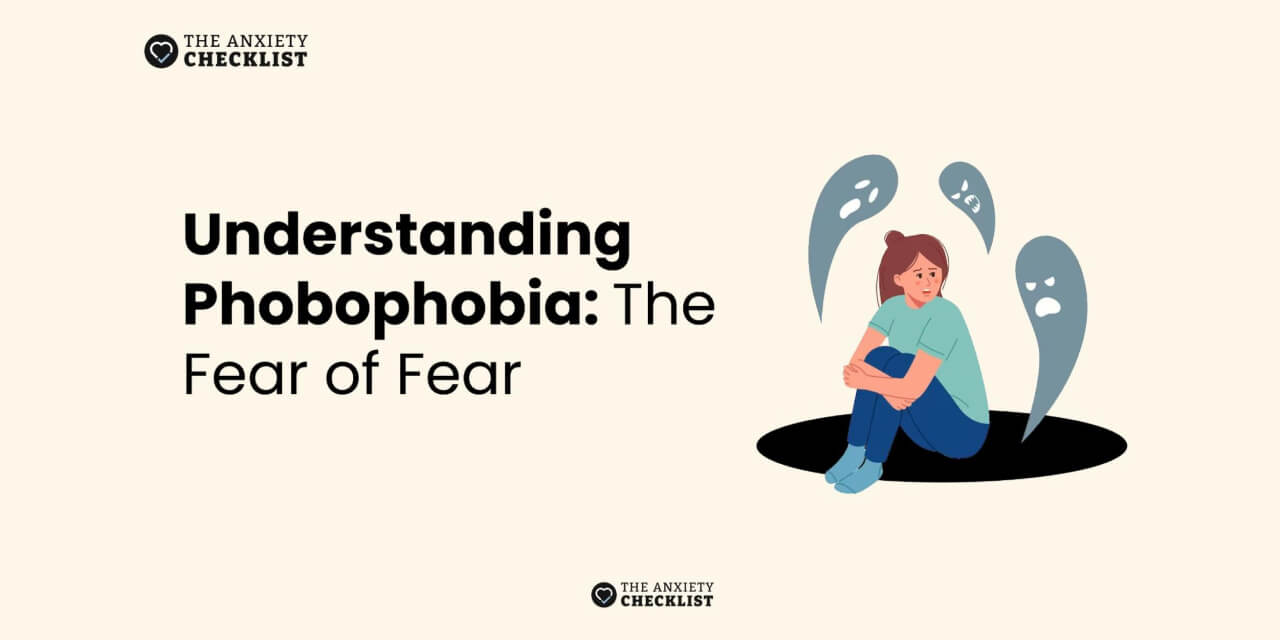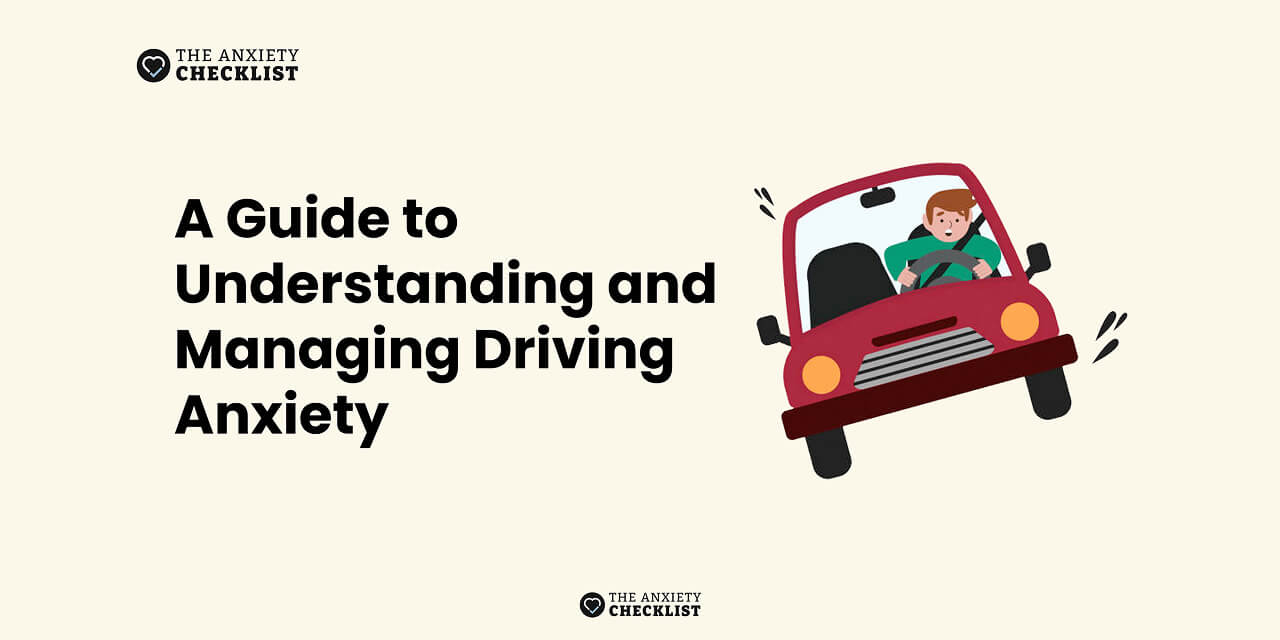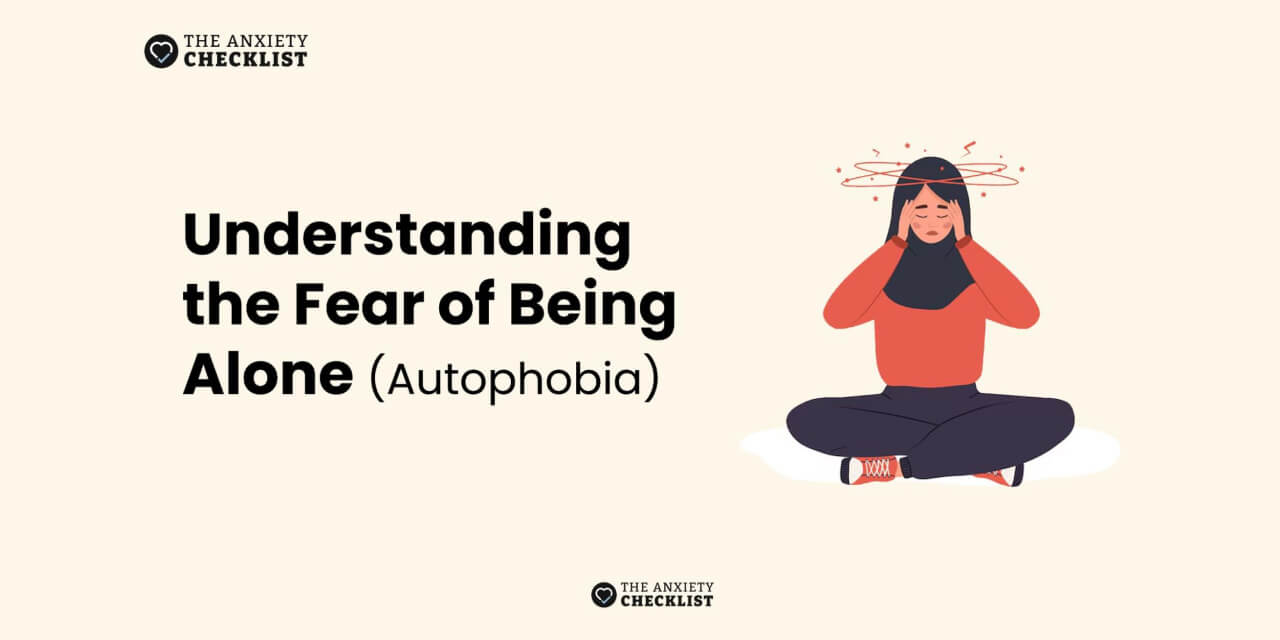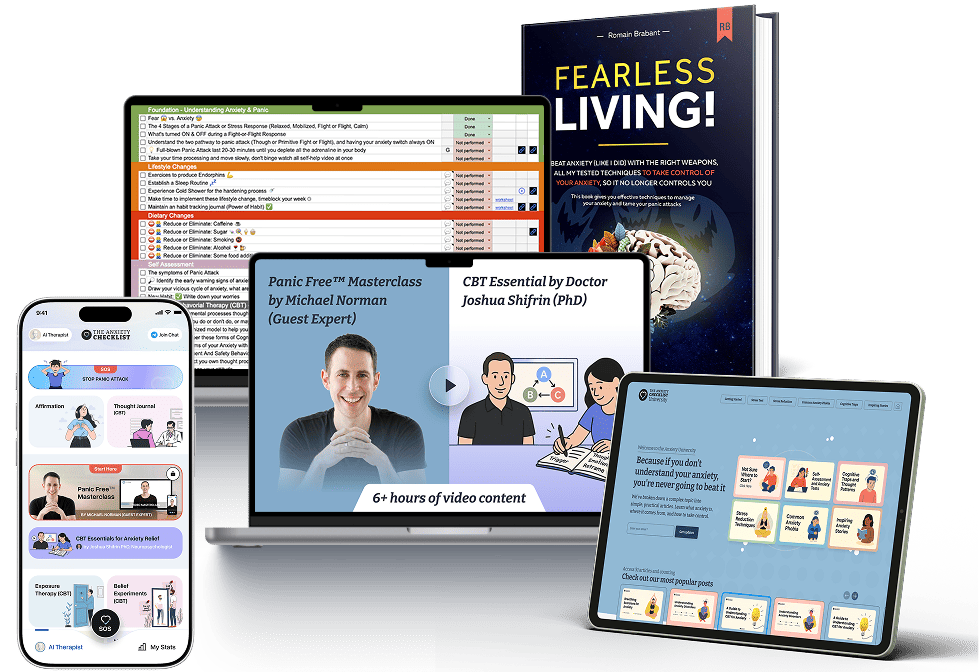What Is Phobophobia?
Phobophobia is the fear of experiencing fear. It’s not just a poetic phrase—it’s a real and recognized psychological phenomenon. While it isn’t a standalone diagnosis in the DSM-5, it frequently shows up in individuals with panic disorder or generalized anxiety disorder (GAD).
Unlike typical phobias, which revolve around external triggers, phobophobia is inward-facing. The individual fears the sensations of anxiety themselves—heart racing, shortness of breath, spiraling thoughts—and begins to dread the possibility of panic.
Ironically, this anticipatory anxiety can create the very symptoms the person fears, trapping them in a cycle of avoidance, hypervigilance, and emotional exhaustion.
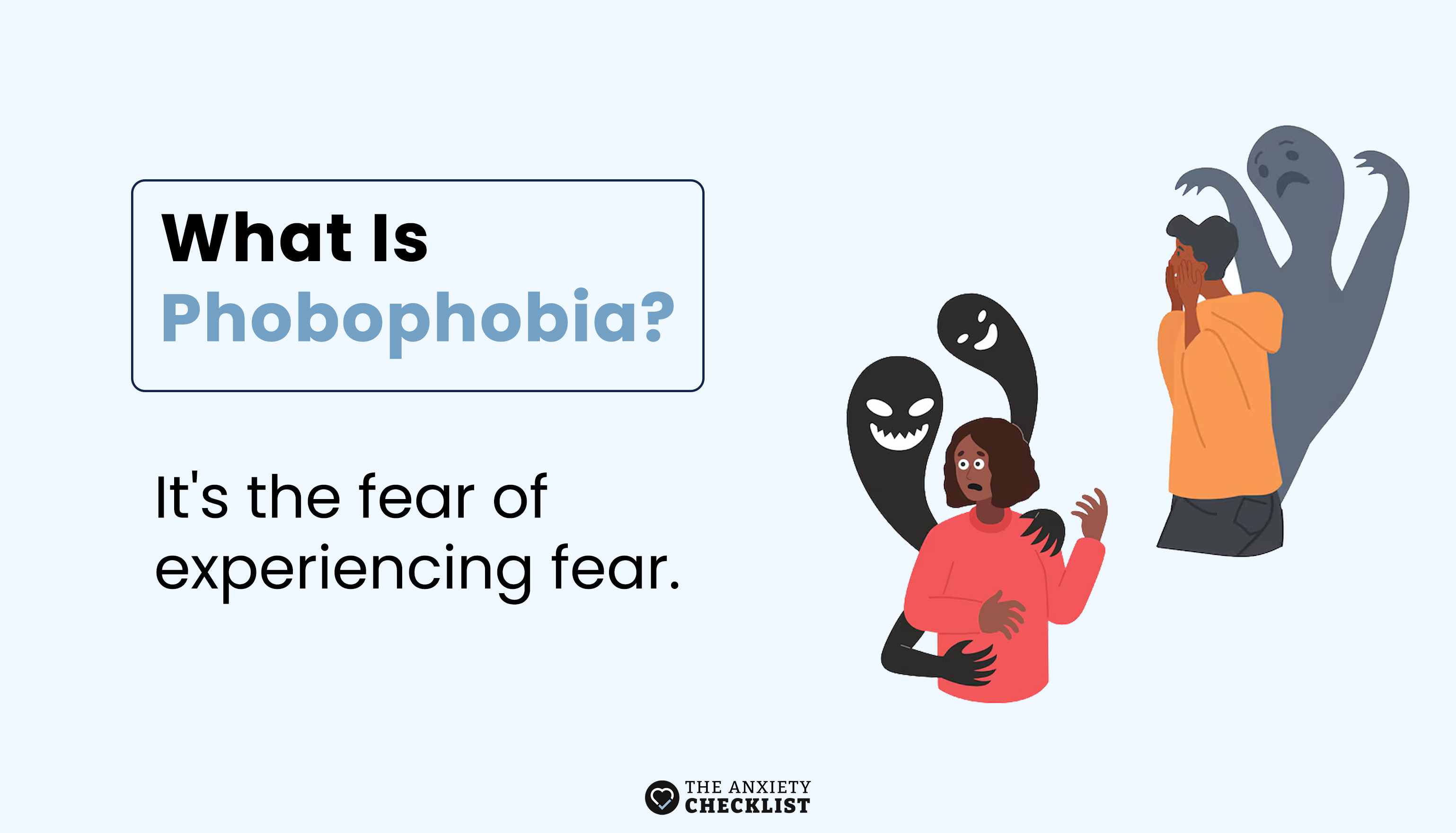
When anxiety hits, do you know what to do next?
Learn how to calm your body, interrupt fear loops, and regain control step by step.
The Vicious Cycle of Anxiety
At the heart of phobophobia is the vicious cycle of anxiety:
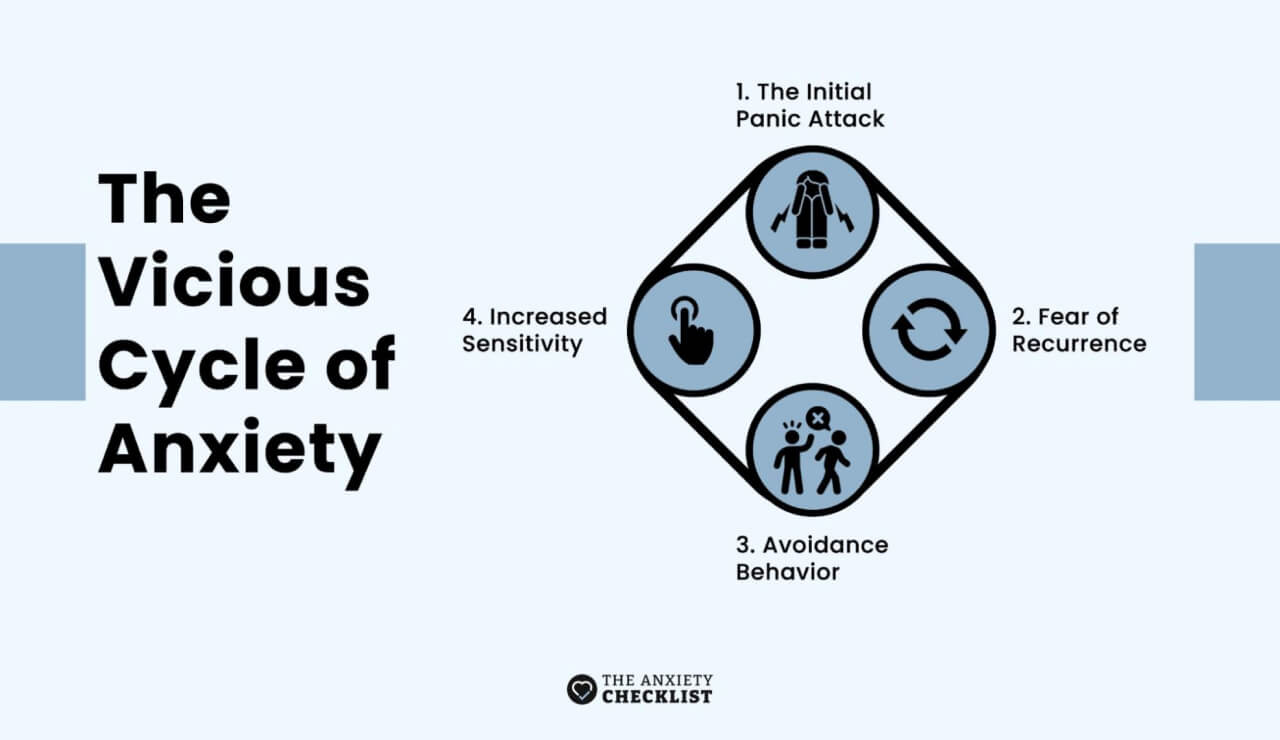
Breaking the Cycle
Treating phobophobia requires addressing both the immediate symptoms of anxiety and the underlying fears fueling it. Fortunately, there are effective methods for interrupting this cycle and reclaiming control over your life.
Treatments and Techniques
- 1.Cognitive Behavioral Therapy (CBT): CBT remains the gold standard for treating anxiety-related conditions, including phobophobia. Through exposure therapy and cognitive restructuring, clients gradually desensitize to feared sensations and learn to reinterpret anxiety as manageable rather than catastrophic.
- 2.Hypnotherapy: Though not considered a first-line treatment, some studies suggest hypnotherapy may support anxiety reduction by promoting deep relaxation and increasing suggestibility to positive cognitive shifts. Its success is highly individualized and should be used alongside, not in place of, empirically supported methods like CBT.
- 3.Breathing Exercises: Targeted breathing techniques—such as diaphragmatic breathing or box breathing—help regulate the autonomic nervous system. By lowering heart rate and increasing oxygen flow, they serve as powerful in-the-moment tools during rising anxiety or early-stage panic.
- 4.Meditation and Mindfulness: Regular mindfulness or meditation practice builds awareness of thought patterns and emotional reactivity. Over time, it enhances one’s ability to remain present, reducing anticipatory fear and creating more space between stimulus and response.
- 5.Lifestyle and Dietary Changes: Though not standalone treatments, adequate sleep, balanced nutrition, hydration, and consistent physical activity all contribute to emotional regulation and nervous system resilience. These habits can reduce baseline anxiety and support long-term recovery.
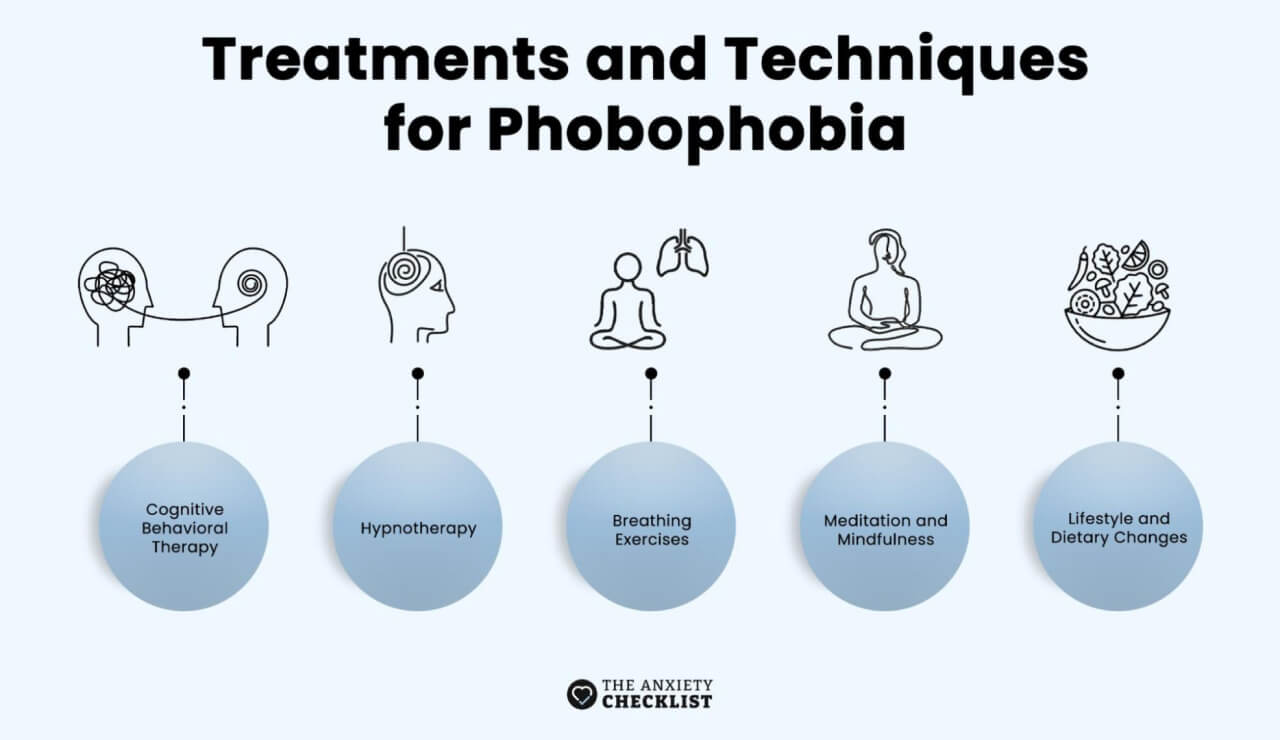
A Holistic Approach: The Anxiety Checklist Masterclass
For those ready to take the first step, we created the Anxiety Masterclass—an educational experience designed by mental health professionals and educators.
This program offers:
This program was co-developed by mental health professionals with graduate-level training in mental health counseling, cognitive-behavioral therapy, and clinical hypnosis.
Note: This class is not a form of therapy and is not a substitute for treatment by a licensed mental health provider. Always consult a qualified professional before beginning any new intervention or mental health program.
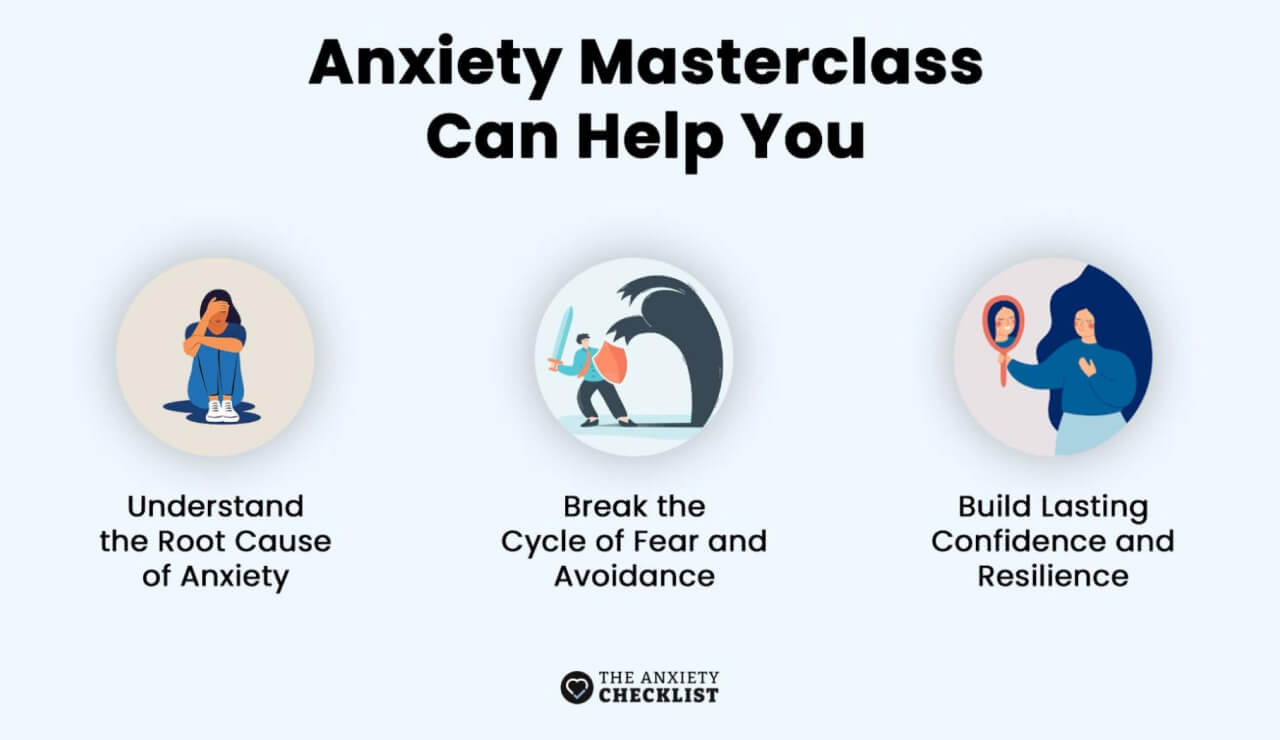
Why Early Intervention Matters
If left untreated, phobophobia can significantly limit your life, as avoidance behaviors grow and anxiety becomes more pervasive. The good news is that the cycle can be broken with the right tools and support. Early intervention prevents phobophobia from escalating into more severe forms of anxiety and ensures a faster path to recovery.
Connecting the Dots
Phobophobia often overlaps with other forms of anxiety and stress. If you're just getting started on your journey to understanding anxiety, explore our articles on anxiety disorders and panic attack statistics in the Getting Started section.
For practical stress reduction strategies, visit our Stress Reduction category, where we delve into breathing exercises, NLP, and other transformative techniques. And if you experience other specific fears like driving anxiety, our Common Phobia section offers targeted advice to regain your confidence.
Take the First Step Today
Phobophobia can feel overwhelming, but you don’t have to face it alone. Join the thousands of people who have transformed their lives through the Anxiety Masterclass. With the right knowledge and tools, you can regain control and live free from the fear of fear.
Explore more resources and start your journey to fearless living at Anxiety University.
If you are in a crisis or any other person may be in danger - don't use this site. These resources can provide you with immediate help.



